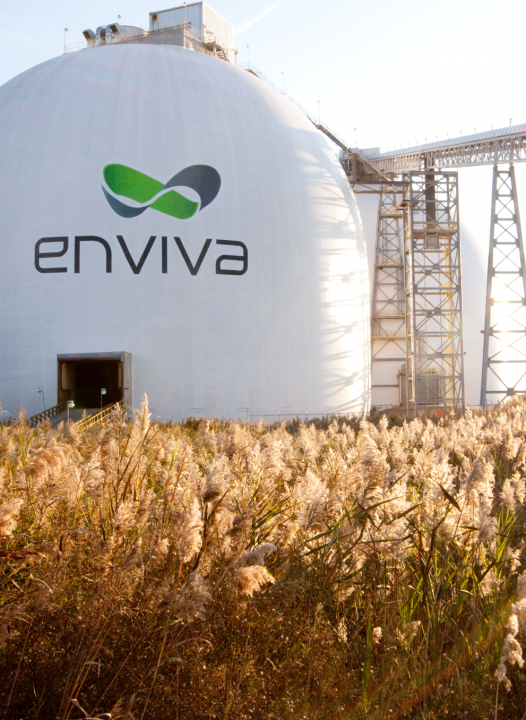TAX INFORMATION
2020 Schedule K-1s
Enviva Partners, LP (NYSE: EVA) 2020 Schedule K-1 Tax Packages are now available online for public unitholders. Please click the link below to access your tax package on Enviva’s Tax Package Support website:
Go to our website and sign up to receive your 2020 K-1 Tax Package electronically.

New for tax year 2020
How does the CARES Act impact my 2020 interest expense deduction?
• Under the CARES Act of 2020, you may be eligible to deduct a portion of any Excess Business Interest Expense (“EBIE”) reported to you on your tax year 2020 Schedule K-1, Box 13K. Please consult your tax advisor to determine if this adjustment could impact your 2020 tax return. (See FAQs for additional information)
Schedule K-1, Item L – Partner’s Capital Account Analysis:
• The Partnership is a Publicly Traded Partnership (“PTP”) under IRC Section 7704 and has an election under IRC Section 754 in effect. The Partnership tracks each partner’s Section 743(b) adjustment, and reports capital accounts inclusive of outside basis that results from the Section 743(b) adjustment. The impact of depreciation, depletion and/or amortization as related to the Section 743(b) adjustment is included in all income/(loss) items reported on the Schedule K-1 and for Item L – Partner’s Capital Account Analysis. This reporting methodology for PTP’s is different than required reporting for other private partnership investments. Please consult your tax advisor for any questions.
Frequently Asked Questions
-
Do I report any cash I received as my taxable income?
No. You should report the income items shown on your Schedule K-1 provided to you by the Partnership.
-
Why is the amount of cash I received different than the amount I must report on my individual income tax return?
The cash distributions you receive represent your share of our available cash. The amount you are required to include in your individual income tax return is your share of our income and related items, allocated based on the number of units you owned during 2020 and reported on your Schedule K-1. The difference between available cash and income is mainly caused by depreciation (a non-cash expense).
-
What is a Schedule K-1?
Enviva Partners, LP is a publicly traded limited partnership consisting of a general partner and many limited partners (including the investing public). Therefore, all income and expenses flow through to the unitholders to be reported on their individual tax returns. The Partnership is required to file a Form 1065 with the IRS which includes a Schedule K-1 for each unitholder reporting their respective tax information.
-
Why do I receive a Schedule K-1 rather than a Form 1099?
Form 1099 is used to report interest and dividend income. Partnerships are required to separately report many different items of income, gain, loss, deduction and credit. Federal tax law requires these items to be reported on a Schedule K-1.
-
Why don’t I receive my Schedule K-1 by February 1, which is the date required for distribution of Form 1099?
The required distribution date for Schedule K-1s is different than for Form 1099s. Federal law requires partnerships to provide a Schedule K-1 to partners no later than the extended due date of the partnership return. However, Enviva Partners, LP strives to provide Schedule K-1s as early as possible. Prior to mailing the Schedule K-1s to unitholders, Enviva Partners, LP obtains information regarding units bought or sold during the year from brokerage firms and our transfer agent to prepare the Schedule K-1s. Much of this information, in accordance with applicable law, is not provided to us until late January. Following a review and transfer of this information, the final books of the partnership must also be closed, and other information must be cleared, reviewed and processed before Schedule K-1s can be printed and mailed.
-
What should I do if the information in my tax package is incorrect?
Please review your ownership information on the Transaction Schedule to confirm accuracy. Please report any corrections to Tax Package Support at 1-855-839-4124, Monday through Friday, 8 AM to 5 PM, Central Time by May 14, 2021. The partnership will update its records and provide you corrected tax information.
-
What information should I use to file state tax returns?
The State Schedule displays your share of state tax items for states in which the Partnership has operations. You may be required to file a tax return with the states even though you are not a resident of these states.
State Forms will be available at a later date on our website www.envivapartners.com.
NOTE: DUE TO VARYING AND FREQUENTLY CHANGING TAX LAWS BY STATES, YOU SHOULD CONSULT WITH YOUR PERSONAL TAX ADVISOR CONCERNING YOUR FILING REQUIREMENTS AND THE PROPER TAX TREATMENT OF PARTNERSHIP ITEMS ON YOUR STATE INCOME TAX RETURNS.
-
Do I have to file tax returns in any state in which I do not live?
Certain states require unitholders to file tax returns in the states in which the Partnership operates. You should consult with your tax advisor regarding the need to file state tax return.
-
Am I required to file tax returns for the states in which EVA operates?
Certain states require unitholders to file tax returns in the states in which we operate. You should consult your tax advisor for additional guidance on this issue. In addition, state tax forms and instructions can be obtained via the internet at sites such as www.taxsites.com or by contacting the appropriate state’s department of revenue.
-
Where do I find my items related to Business Interest Expense, IRC Section 163(j)?
IRC Section 163(j) “Business Interest Expense Limitation” was modified by the Tax Cuts and Jobs Act of 2017 (TCJA). For tax years beginning after 2017 Schedule K-1, Lines 13K, 20N, 20AE, and 20AF will include reportable items (if applicable) that you might need to report your Business Interest Expense Deduction. Please consult your tax advisor.
-
What is Unrelated Business Taxable Income (UBTI)?
UBTI is relevant for a tax-exempt organization (including IRAs, Keogh and other qualified retirement plans). It represents the distributive share of gross income and allowable deductions of a publicly traded partnership which is considered to be unrelated to the regular activities of the tax-exempt organization and therefore includable in taxable income. UBTI may be offset by a $1,000 annual deduction. We expect virtually all of our income to be considered UBTI for these tax-exempt organizations.
-
What federal tax return is used to report UBTI?
Tax-exempt organizations (including IRAs, Keogh and other qualified retirement plans) are required to file Form 990-T if they have gross income from an unrelated trade or business of $1,000 or more. Gross income is gross revenue minus the cost of goods sold. See 2019 SCHEDULE K-1 SUPPLEMENTAL INFORMATION for your share of EVA‚s gross income.
-
How is my tax basis affected by cash distributions, income and non-recourse debt?
The cash distributions you receive decrease the tax basis in your EVA units. At year end, your tax basis is also adjusted up or down by your share of our taxable income or (loss) and increased by non-recourse debt allocated to you on your Schedule K-1.
-
Does the Schedule K-1 show my tax basis in the units I own?
No. However, the Ending Capital Account, Item L of your Schedule K-1 shows the activity that impacts tax basis. The Ending Capital amount also includes the original cost of your units, as reported to us by your broker, and other adjustments affecting tax basis. However, brokers do not always report original cost to us, or the original cost reported may be incorrect. When brokers do not report original cost to us, the low[est] closing price for the month in which you purchased units is assumed to be the cost. This assumption, or incorrect cost reporting by the broker, can cause the Ending Capital Account to be different than your actual tax basis at December 31. Please consult your tax advisor for additional guidance.
-
If I sell my EVA units, why is there ordinary income to report?
A sale of units is treated as if there were a sale of the partner’s allocable share of each of our assets. Gain on the sale of assets for which depreciation deductions have been taken is treated as ordinary income rather than capital gain. The ordinary income on sale of units represents the gain resulting from depreciation deductions previously allocated to you.
-
If I sell my units, how is my tax basis determined for computing gain or loss?
Your tax basis is the original amount paid for the partnership units. The basis is increased by the cumulative income and gains and is reduced by cash distributions, as well as cumulative amounts of loss, deduction and credits reported on Schedule K-1.
-
Is the taxable income I earn from my investment in EVA subject to the 3.8% Net Investment Income Tax?
If you are an individual who is a citizen or resident of the United States and you do not materially participate in the activities of EVA, the items of income, gain, loss, and deduction reported on your Schedule K-1 as well as any gain or loss you recognize from the sale of EVA units may be subject to the Net Investment Income Tax. Certain trusts and estates may also be subject to the tax. The tax applies when a taxpayer’s modified adjusted gross income exceeds certain threshold amounts.
-
Where is my 743(b) basis adjustments reported?
Amounts for Section 743(b) positive and negative basis adjustment have been included in the net amount reported on Line 1 and Line 10 and are not reported separately on Line 11F or Line 13V.
-
Where can I find my ordinary gain recapture related to the sale of my units?
If you disposed of units during the year, the related ordinary gain is reported to you on Schedule K-1, Line 20AB – Section 751 gain (loss). This Section 751, ordinary gain recapture, also reported on your 2020 Sales Schedule in Column 7.
-
Is all the information I need to calculate my current year 199A deduction included on line 20Z?
Possibly Not. If you sold units in 2020 you can increase your 199A income by the amount of ordinary gain recapture recognized as a result of the sale. Please refer to your Sales Schedule, Column 7 for this amount. There could be negative prior year 199A amounts that need to be considered. See FAQs immediately below.
-
What do I do with negative Section 199A amounts reported on 20Z?
Negative amounts are carried forward and reduce future positive Section 199A amounts allocated to you until the negative amount is used up. Prior year negative 199A amounts reported to you can be obtained from Tax Package Support.
-
Where is my Statement A – Qualified Business Income (“QBI”) Pass-Through Entity Reporting for Section 199A?
In lieu of Statement A, your Section 199A reporting detail can be found on Schedule K-1, Line 20Z of the Supplemental information. {The Partnership does not have any W-2 Wages for reporting.} If you have any questions regarding the detailed reporting requirements for Section 199A, please contact your tax advisor.
IRC Section 751 Statement
If you disposed of some or all of your units during 2020 and have Ordinary Gain in Column 7 of your Sales Schedule, a Section 751 statement must be attached to your tax return. Example language for the statement is shown below:
“The taxpayer has reported ordinary income upon disposition of units in Enviva Partners, LP, as provided by the General Partner. The amount was determined in accordance with Internal Revenue Code Section 751 and the detailed information is available in the offices of the General Partner upon request.”

